
Gerta Hoxhaj knew at a young age that she wanted to pursue a career in science, inspired by the work of her grandfather—who was a physician—and delighted by her science studies even as a child.
“Fascinated by the beauty of biology and the elegant molecular mechanisms driving myriad cellular processes, I was inspired to pursue a career as a scientist and delve into the realms of biology.”
Hoxhaj is now a leading scientific researcher in the molecular mechanisms that control cellular metabolism in cancer. Her scientific leadership in understanding metabolism is paving the way for targeted interventions to improve human health.
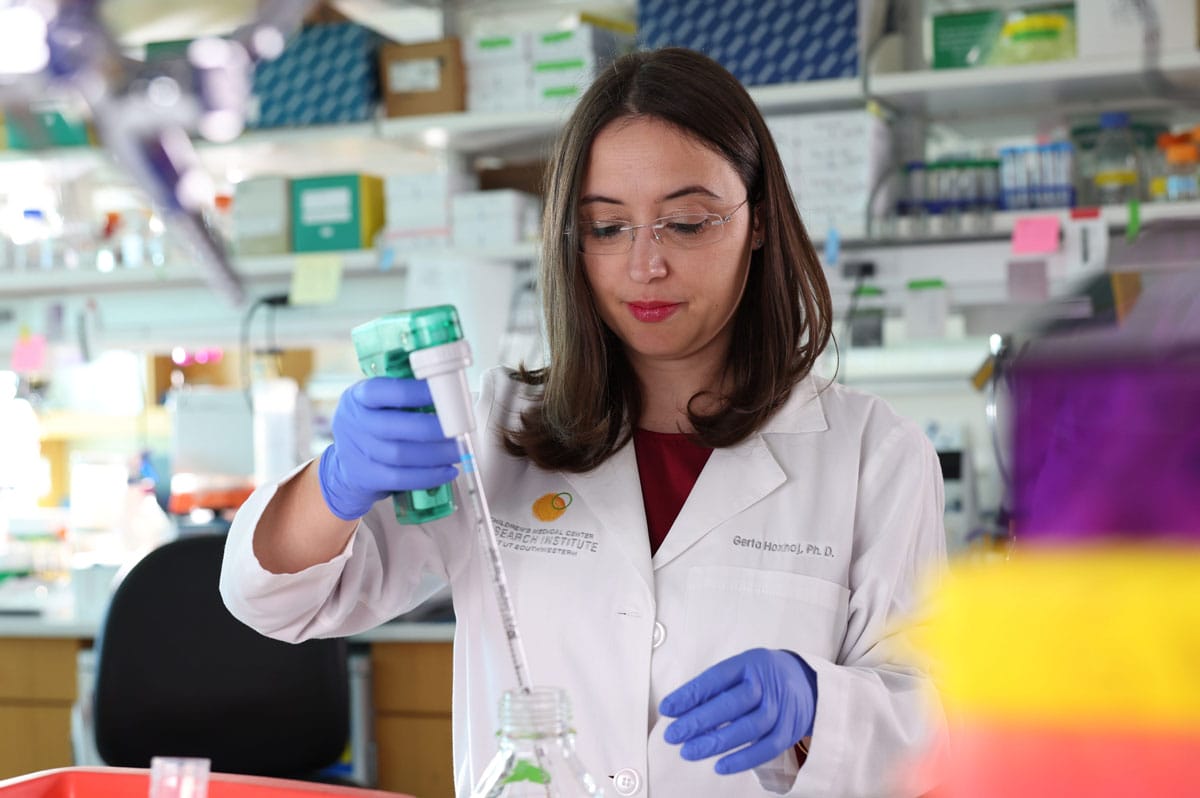
From Albania to the Apex of Scientific Discovery
Hoxhaj was born in Albania, and first left home at the age of 14 to attend high school in the country’s capital, Tirana. There, she says, “I had the privilege of participating in advanced biology and molecular biology classes, as well as taking part in National Biology Olympiads.”
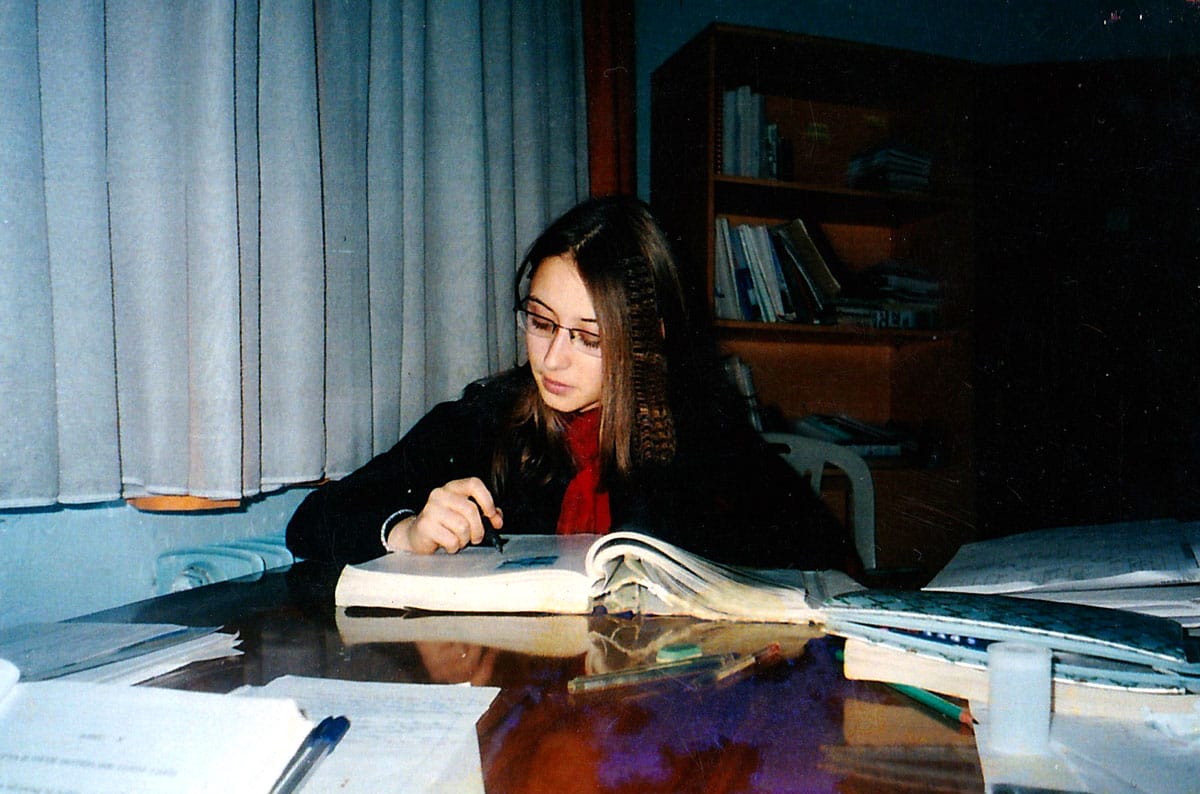
At the age of 18, Hoxhaj left Albania to pursue studies in molecular biology, genetics, and chemistry at the Boğaziçi University, Istanbul, Turkey. She then moved to Scotland to pursue her PhD in Life Sciences; during her PhD studies, Gerta trained as a biochemist with a focus on nutrient signaling. In 2013, Hoxhaj moved to the United States for postdoctoral research at Harvard University; it was during this time that she honed her focus on the molecular drivers of cancer metabolism—a field that fascinated Hoxhaj, and was in its relative infancy at that time.
“I feel like I’ve been a little bit of a science nomad,” says Hoxhaj. “I love that about science—that it has brought me to know so many different people around the world.”
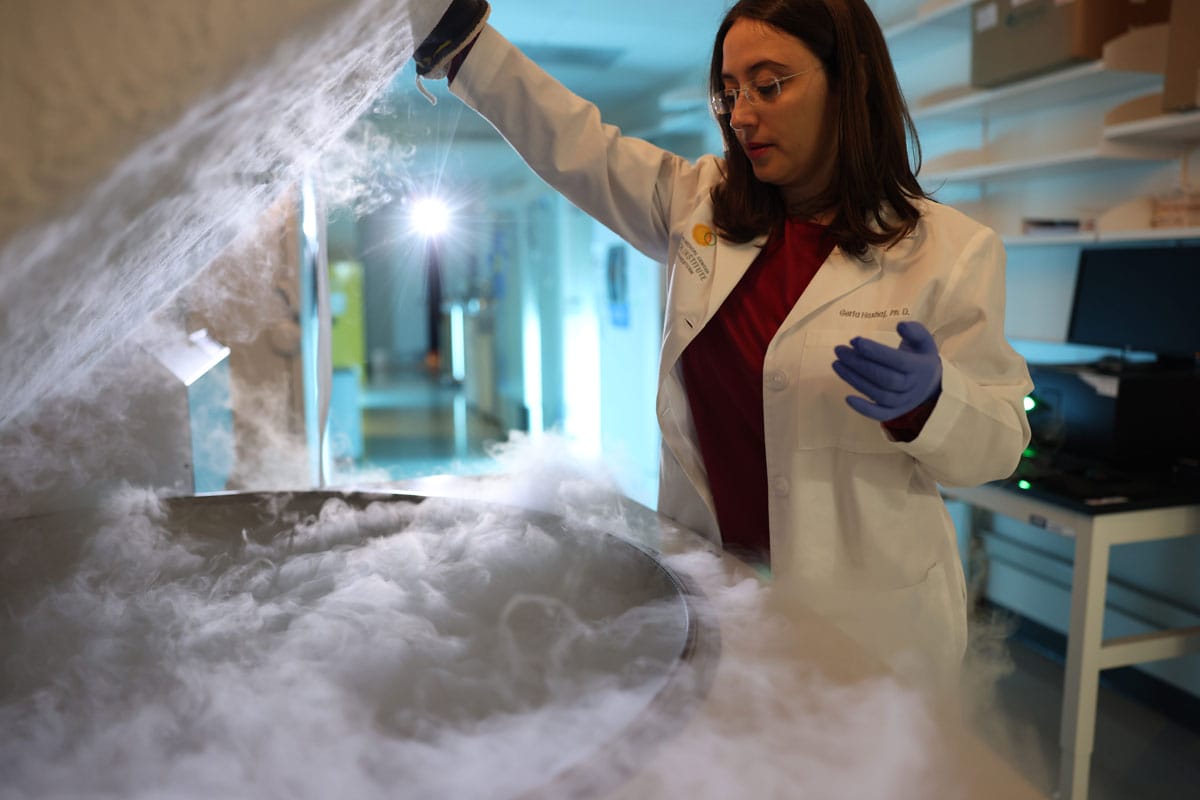
Decoding the Secrets of Cells
Now at the helm of her own lab at the Children’s Medical Center Research Institute at the University of Texas Southwestern, Hoxhaj describes her work: “My laboratory focuses on understanding the molecular fundamentals of altered metabolism,” she says. “Through harnessing the power of classical biochemistry and mass spectrometry, we hope to uncover the metabolic vulnerabilities of cancer and contribute to building the foundations of targeted therapies.”
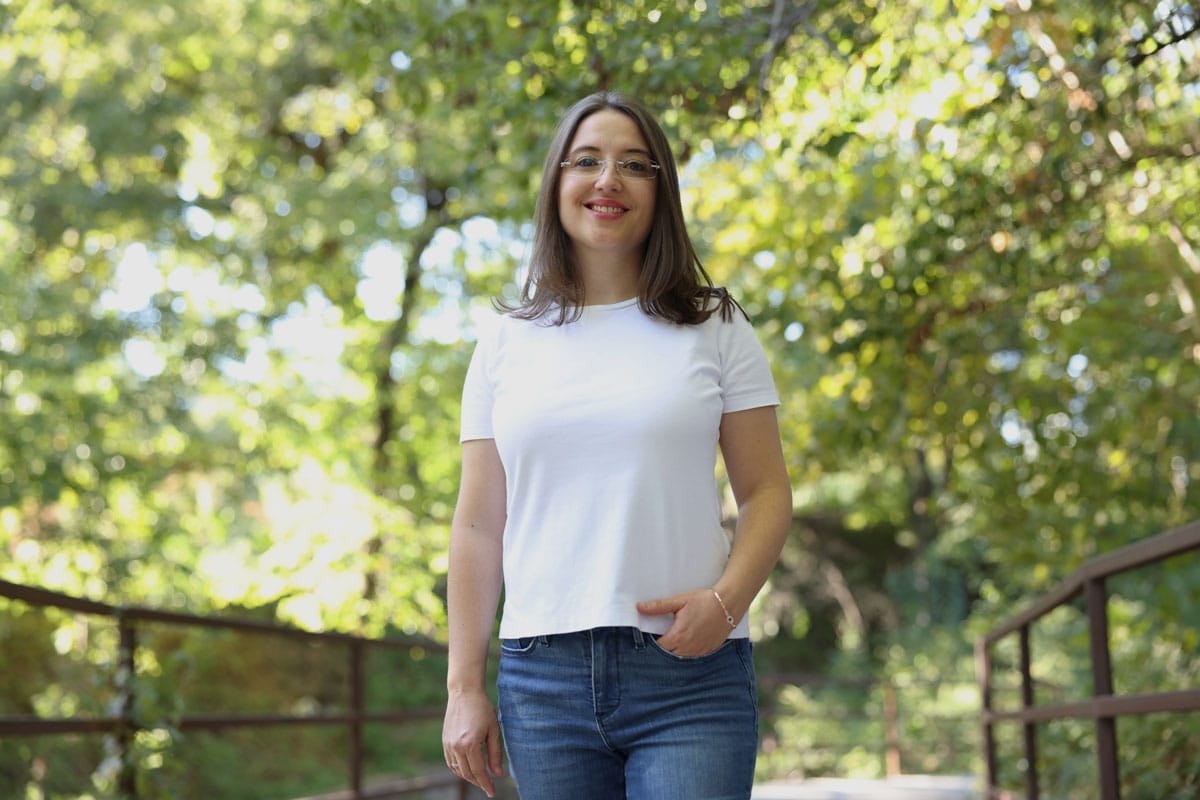
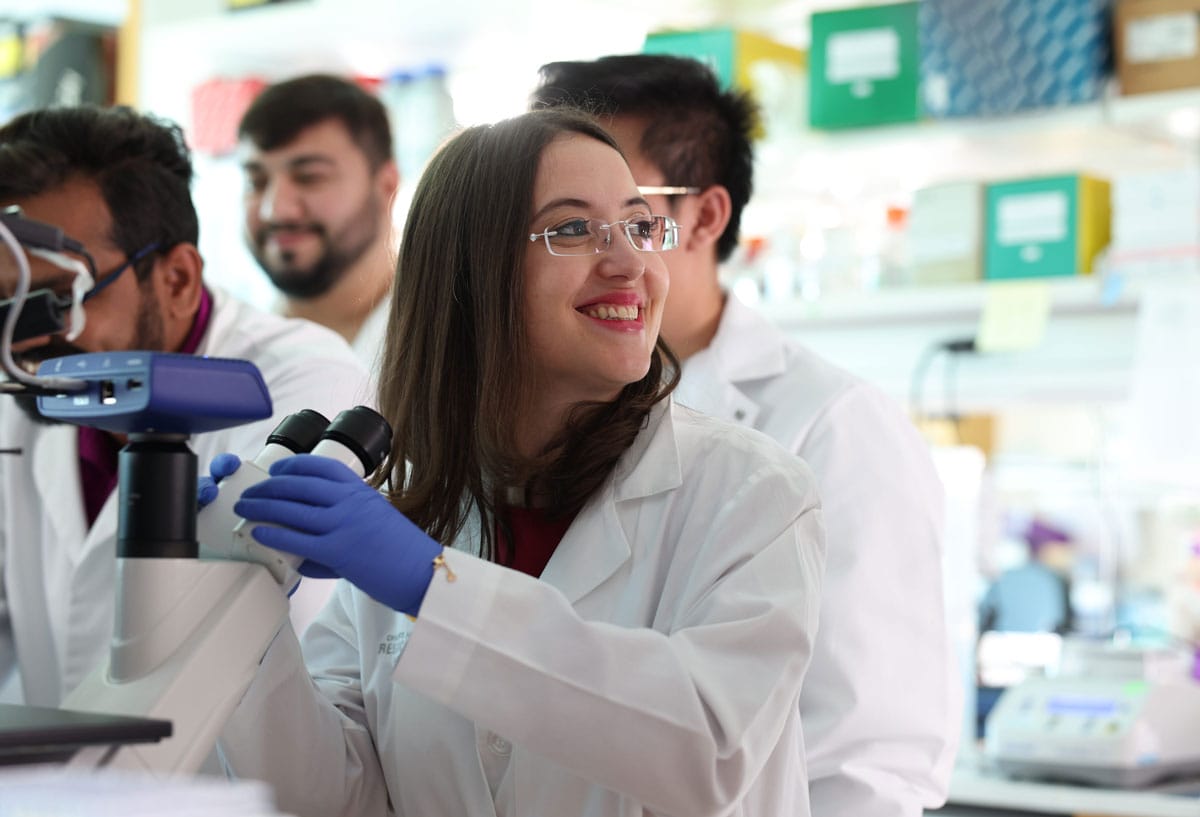
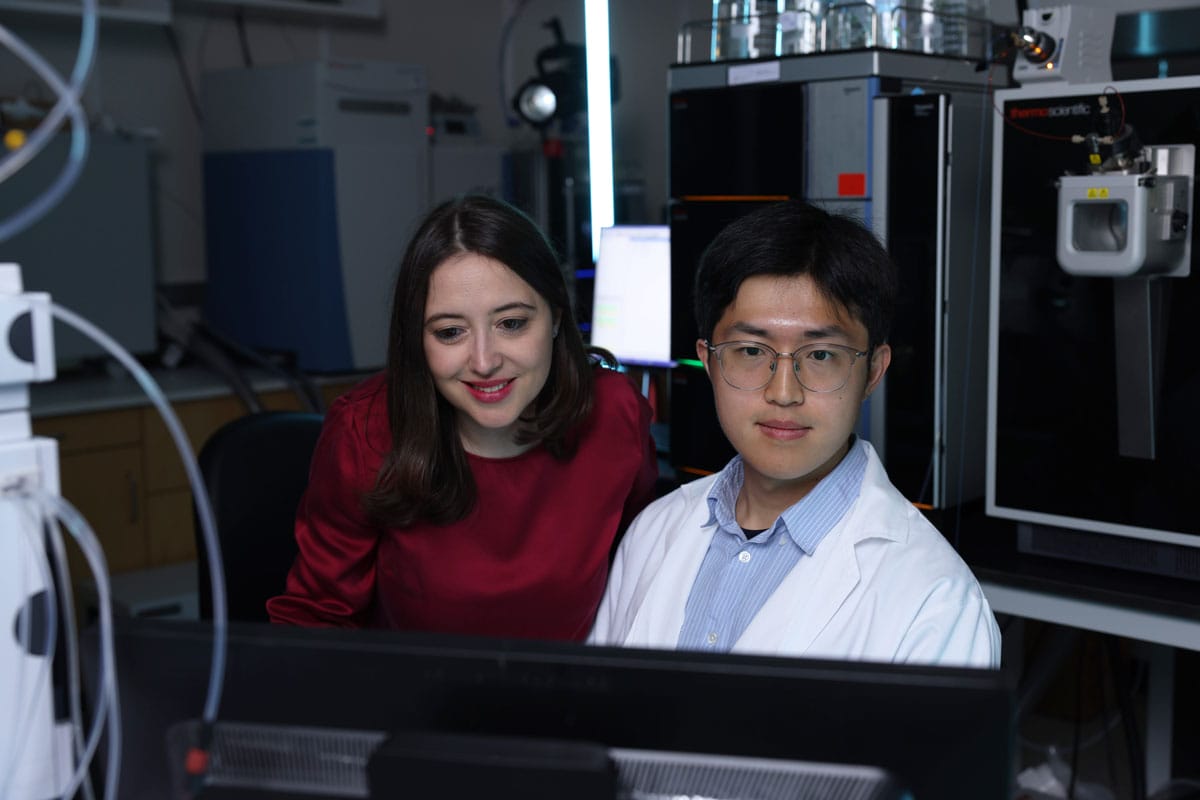

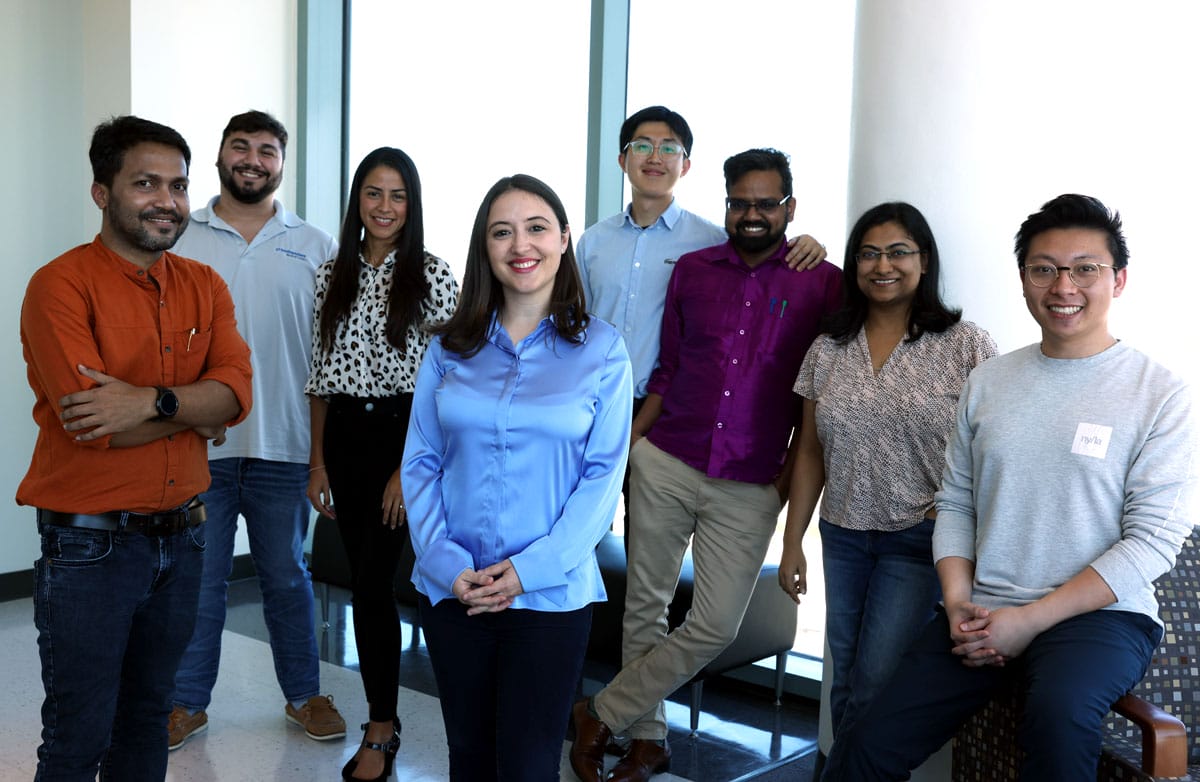
As Hoxhaj continues to research the function of metabolism at the molecular level in cancer and other disorders, each question leads her to further lines of inquiry and closer to the development of targeted diagnostics and therapies. “What are the metabolic bottlenecks of cancer cell growth? How do cells sense key nutrients and other small molecules involved in cellular metabolism?” she wonders. “Answering these questions will help us develop a comprehensive map of the connections between signaling pathways and metabolic networks and identify nutrient and metabolic vulnerabilities of cancer cells.”

A Legacy Beyond the Lab
Hoxhaj takes pride in the global talent her lab attracts. As a mentor, Hoxhaj puts a focus on teamwork and collaboration, aiming to create an environment that welcomes a diversity of thought from diverse students and trainees. “Science is beautiful when you do it on your own, but it’s so much more enjoyable when you do it as a team, and there is a constant atmosphere of brainstorming and flow of ideas.”
Related News
Vilcek Foundation Awards $250,000 to Immigrants in Biomedical Science

Maayan Levy: Pioneering Metabotherapy
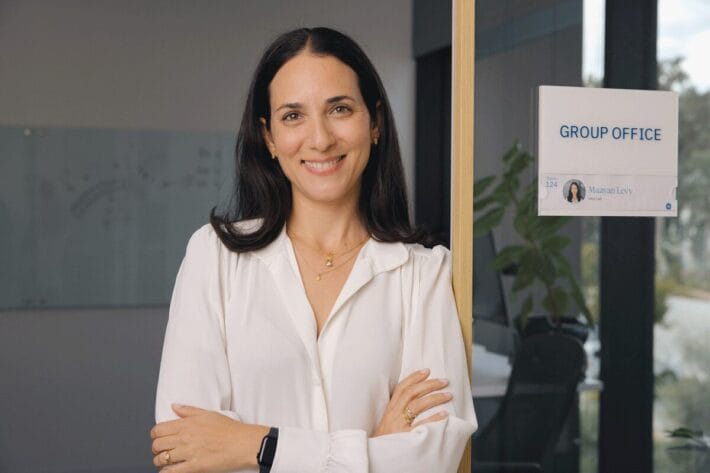
Vilcek Foundation Awards $250,000 to Immigrants in Biomedical Science

You may also be interested in
Gerta Hoxhaj

Maayan Levy
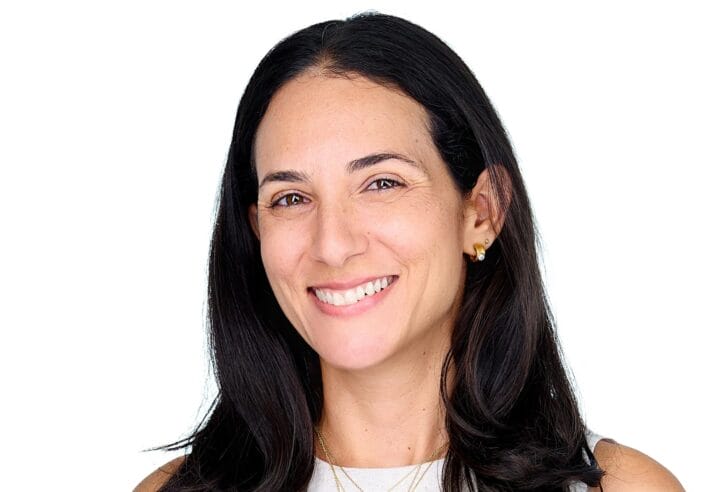
Edward Chouchani
